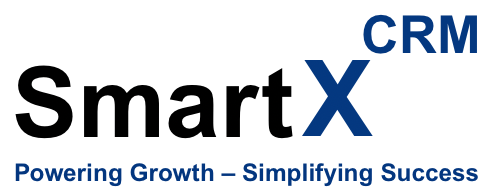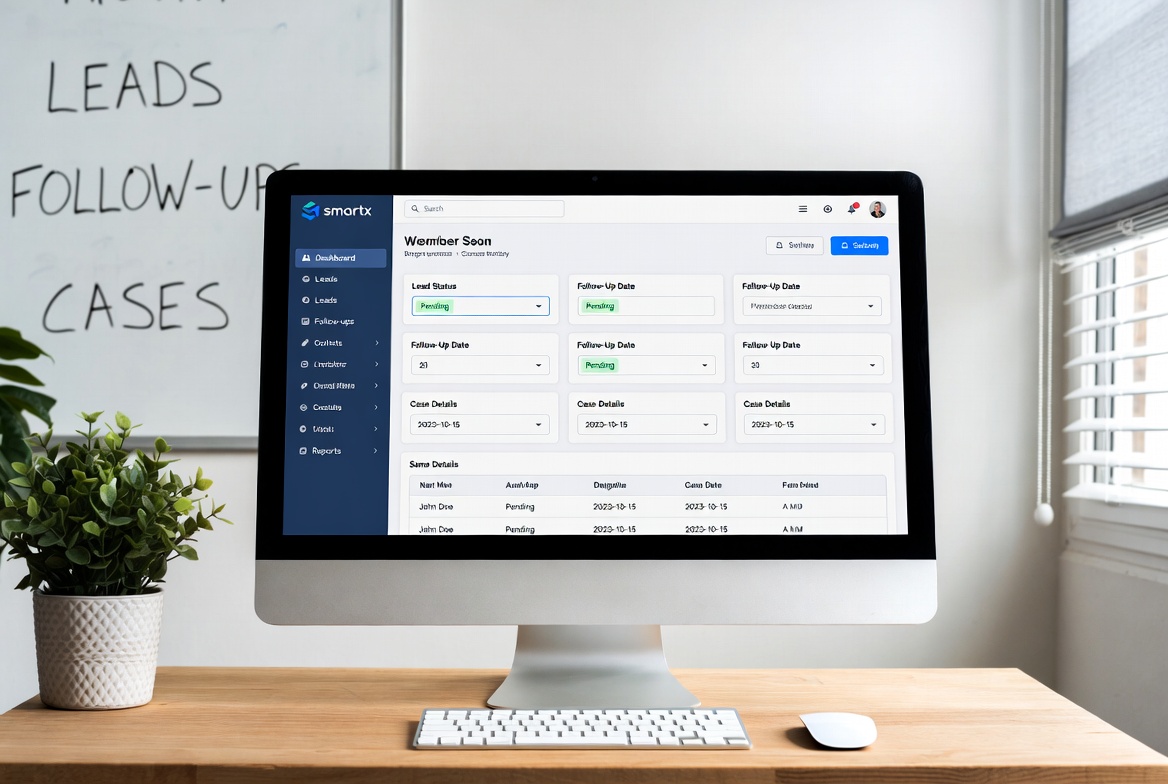In the competitive landscape of manufacturing, sales teams face unique challenges that traditional sales approaches simply can’t solve. Long sales cycles, complex pricing structures, multi-stakeholder decisions, and intricate supply chain considerations demand a sophisticated approach to customer relationship management. That’s where specialized CRM software for manufacturing sales teams becomes not just helpful, but essential.
Understanding the Manufacturing Sales Challenge
Manufacturing sales are fundamentally different from other B2B sales environments. Your sales team isn’t just selling a product—they’re managing relationships that span months or even years, coordinating with procurement departments, navigating technical specifications, and balancing production schedules with customer demands.
The average manufacturing sales cycle can stretch from 3 to 18 months, involving multiple decision-makers, detailed product specifications, custom quotes, and ongoing negotiations. Without a robust CRM system designed for these complexities, sales teams struggle with:
- Lost opportunities due to missed follow-ups during lengthy sales cycles
- Inefficient quote management with multiple revisions and specifications
- Poor visibility into the sales pipeline and forecasting accuracy
- Disconnected communication between sales, production, and customer service teams
- Manual data entry that wastes valuable selling time
SmartX CRM addresses these challenges head-on with features specifically designed for manufacturing environments, helping sales teams close more deals while spending less time on administrative tasks.
Why Manufacturing Companies Need Specialized CRM Software
Generic CRM solutions often fall short in manufacturing environments because they don’t account for the industry’s unique requirements. Manufacturing sales teams need more than basic contact management—they need a comprehensive system that understands their business model.
Complex Product Configurations and Custom Quotes
Manufacturing often involves custom products or configurations that vary by customer. Your CRM needs to handle complex product catalogs, manage custom specifications, and generate accurate quotes that reflect material costs, production time, and customization requirements. SmartX CRM’s lead management capabilities ensure every custom quote and product specification is tracked throughout the sales process.
Long Sales Cycles with Multiple Touchpoints
Unlike transactional sales, manufacturing deals require consistent nurturing over extended periods. A specialized CRM helps sales reps maintain momentum through automated follow-ups, scheduled check-ins, and intelligent reminders. With automated follow-ups, your team never misses a critical touchpoint that could make or break a deal.
Multi-Stakeholder Decision Making
Manufacturing purchases typically involve procurement managers, engineering teams, finance departments, and executive leadership. Your CRM must track all these relationships, document each stakeholder’s concerns and priorities, and ensure your sales team addresses everyone’s needs effectively.
Integration with Production and Inventory Systems
Sales teams need real-time visibility into production capacity, inventory levels, and delivery timelines. A manufacturing-focused CRM integrates with your existing systems to provide accurate information that helps sales reps set realistic expectations and close deals faster.
Essential CRM Features for Manufacturing Sales Teams
When evaluating CRM solutions for your manufacturing sales team, certain features are non-negotiable. Here’s what separates a good manufacturing CRM from an exceptional one:
1. Advanced Lead and Opportunity Management
Manufacturing lead generation requires a strategic approach. Your CRM should capture leads from multiple channels—trade shows, website inquiries, referrals, and cold outreach—and automatically qualify them based on your ideal customer profile. SmartX CRM’s lead generation services for manufacturing and distribution provide a comprehensive framework for capturing and converting high-quality leads.
The system should track each opportunity through defined stages: initial contact, needs assessment, technical review, quote generation, negotiation, and closing. With clear pipeline visibility, sales managers can forecast revenue accurately and identify bottlenecks before they impact performance.
2. Quote and Proposal Management
Manufacturing quotes are complex documents that may include detailed specifications, material costs, production timelines, and terms and conditions. Your CRM should streamline quote generation with:
- Template libraries for common product configurations
- Automated pricing based on materials, labor, and overhead
- Version control to track quote revisions
- Approval workflows for quotes exceeding certain thresholds
- Digital signature capabilities for faster closing
SmartX CRM enables sales teams to generate professional quotes in minutes rather than hours, accelerating the sales cycle and reducing errors.
3. Account and Contact Relationship Mapping
Understanding the organizational structure of your manufacturing customers is crucial. Your CRM should map relationships between contacts, identify decision-makers and influencers, and track communication history with each stakeholder. This ensures that when your primary contact leaves or new stakeholders enter the conversation, your team maintains continuity and doesn’t lose ground.
4. Task Automation and Workflow Management
Manufacturing sales involve repetitive tasks that consume valuable time: sending follow-up emails, scheduling calls, updating records, and coordinating with internal teams. Automation features eliminate this administrative burden, allowing sales reps to focus on relationship-building and closing deals.
SmartX CRM’s task and reminder automation ensures nothing falls through the cracks. Automated workflows can trigger follow-up emails after quote delivery, schedule check-in calls during long sales cycles, and alert reps when customers engage with proposals or technical documentation.
5. Custom Fields and Data Tracking
Every manufacturing business has unique data requirements. Your CRM should allow custom fields to track industry-specific information like:
- Production lead times
- Material specifications
- Compliance certifications
- Minimum order quantities
- Customer production schedules
- Quality requirements
This flexibility ensures your CRM adapts to your business rather than forcing you to adapt to the software.
6. Analytics and Reporting
Data-driven decision-making separates top-performing manufacturing sales teams from the rest. Your CRM should provide comprehensive analytics including:
- Pipeline analysis: Identify where deals stall and why
- Sales rep performance: Track individual and team metrics
- Win/loss analysis: Understand why you win or lose deals
- Quote-to-close ratios: Measure proposal effectiveness
- Customer lifetime value: Prioritize high-value relationships
- Forecasting accuracy: Predict revenue with confidence
SmartX CRM’s reporting dashboard gives sales leaders the insights they need to coach their teams effectively and optimize the sales process continuously.
7. Mobile Access for Field Sales
Manufacturing sales reps often work in the field, visiting customer facilities, attending trade shows, and meeting with prospects on-site. Mobile CRM access ensures they can:
- Update opportunity information in real-time
- Access product specifications and pricing
- Log customer interactions immediately
- Review account history before meetings
- Generate and send quotes from anywhere
This real-time connectivity keeps your sales team productive regardless of location.
How SmartX CRM Transforms Manufacturing Sales Performance
SmartX CRM isn’t just another customer database—it’s a complete sales acceleration platform built for the realities of manufacturing sales. Here’s how our platform specifically addresses manufacturing challenges:
Streamlined Lead Qualification and Routing
Not all leads are created equal. SmartX CRM’s intelligent lead scoring evaluates inquiries based on factors like company size, industry, project scope, and engagement level. High-priority leads are automatically routed to your most experienced sales reps, while marketing-qualified leads receive nurturing campaigns until they’re sales-ready. Our manufacturing lead generation CRM ensures your team focuses on opportunities with the highest conversion potential.
End-to-End Customer Journey Management
From first contact to repeat orders, SmartX CRM manages the entire customer lifecycle. The platform tracks every interaction, document exchange, and milestone, creating a complete history that helps sales reps provide personalized experiences. From leads to loyalty, SmartX CRM powers every stage of your customer relationships.
Integration with Manufacturing Operations
SmartX CRM connects with your ERP, inventory management, and production scheduling systems, giving sales teams accurate, real-time information. When a prospect asks about delivery times, your rep can provide exact dates based on current production capacity. When customers need to reorder, the system surfaces previous orders and suggests relevant products, accelerating the sales cycle.
Powerful Automation That Actually Works
Unlike generic automation that creates more problems than it solves, SmartX CRM’s automation is designed specifically for manufacturing workflows. The system can:
- Send technical documentation automatically when prospects request it
- Schedule follow-up tasks based on sales cycle stage
- Alert sales reps when customers view quotes or proposals
- Trigger internal notifications when custom approvals are needed
- Generate monthly check-ins with existing customers
This intelligent automation keeps deals moving forward without constant manual intervention.
Superior Data Management vs. Spreadsheets
Many manufacturing companies still rely on Excel spreadsheets for customer management. This approach creates data silos, version control nightmares, and zero visibility for sales leadership. Our article on CRM vs Excel explains why upgrading to a proper CRM system is critical for growth.
SmartX CRM centralizes all customer data in one accessible location, ensures data consistency, and provides security controls that spreadsheets simply can’t match.
Implementing CRM for Your Manufacturing Sales Team
Successful CRM implementation requires more than just buying software—it demands strategic planning, team buy-in, and ongoing optimization. Here’s how to ensure your manufacturing sales team actually adopts and benefits from CRM technology:
1. Define Clear Objectives and Success Metrics
Before implementation, establish what success looks like. Are you trying to:
- Shorten sales cycles by a specific percentage?
- Increase quote-to-close conversion rates?
- Improve forecast accuracy?
- Reduce time spent on administrative tasks?
- Increase sales rep productivity?
Clear objectives guide your implementation strategy and provide benchmarks for measuring ROI.
2. Map Your Current Sales Process
Document your existing sales process in detail: lead sources, qualification criteria, stages in your sales cycle, typical touchpoints, and handoff points between teams. This mapping exercise reveals inefficiencies that CRM can address and ensures the system aligns with how your team actually works.
3. Customize for Your Manufacturing Environment
Generic CRM configurations rarely work for manufacturing. Work with your CRM provider to customize fields, stages, workflows, and reports that reflect your specific business model. SmartX CRM offers extensive customization options that adapt to your unique requirements without requiring complex coding.
4. Integrate with Existing Systems
Your CRM shouldn’t exist in isolation. Integration with your ERP, email system, marketing automation platform, and other business tools creates a seamless workflow that eliminates duplicate data entry and ensures information consistency across systems.
5. Train Your Team Thoroughly
Even the best CRM fails if your team doesn’t know how to use it effectively. Invest in comprehensive training that covers:
- Daily CRM workflows and best practices
- How to leverage automation features
- Mobile app usage for field sales
- Reporting and analytics tools
- Data quality standards
Consider appointing CRM champions within your sales team who can provide peer support and encourage adoption.
6. Start with a Pilot Program
Rather than rolling out CRM across your entire sales organization at once, begin with a pilot team. This approach allows you to:
- Identify and resolve issues before full deployment
- Develop best practices based on real usage
- Build success stories that encourage broader adoption
- Refine training materials based on actual feedback
Once the pilot proves successful, expand implementation with confidence.
7. Monitor Adoption and Continuously Optimize
CRM implementation isn’t a one-time project—it’s an ongoing process. Regularly review:
- User adoption rates and engagement metrics
- Data quality and completeness
- Process bottlenecks and inefficiencies
- Sales performance improvements
- User feedback and feature requests
SmartX CRM provides adoption analytics that help sales leaders identify who’s using the system effectively and who needs additional support.
Overcoming Common CRM Adoption Challenges in Manufacturing
Despite the clear benefits, many manufacturing companies struggle with CRM adoption. Understanding these challenges and proactively addressing them increases your likelihood of success:
Resistance to Change
Sales reps who’ve operated successfully for years using spreadsheets and email may resist new systems. Overcome this by:
- Demonstrating how CRM makes their jobs easier, not harder
- Involving sales team members in the implementation process
- Showing concrete examples of time savings and increased commissions
- Providing adequate training and ongoing support
Data Quality Concerns
Poor data quality undermines CRM effectiveness. Establish clear data entry standards, use validation rules to prevent incomplete records, and schedule regular data hygiene reviews to maintain accuracy.
Integration Complexities
Manufacturing environments often involve legacy systems that are difficult to integrate. SmartX CRM offers flexible integration options including APIs, webhooks, and pre-built connectors that simplify system connectivity without requiring extensive IT resources.
Inadequate Mobile Functionality
Field sales reps need full CRM functionality on mobile devices, not just basic contact viewing. Ensure your CRM provides a robust mobile experience that enables reps to work as effectively in the field as they do in the office.
Measuring CRM ROI for Manufacturing Sales Teams
How do you know if your CRM investment is paying off? Track these key performance indicators:
Sales Cycle Length
Effective CRM should shorten your sales cycle by improving follow-up consistency, streamlining quote generation, and facilitating better communication. Measure the average time from first contact to closed deal before and after CRM implementation.
Conversion Rates
Track conversion rates at each stage of your sales funnel. CRM should improve conversion from lead to opportunity, opportunity to quote, and quote to closed deal. Even small percentage improvements in these metrics can significantly impact revenue.
Sales Rep Productivity
Measure how many opportunities each rep manages, how many customer interactions they complete, and how much time they spend on revenue-generating activities versus administrative tasks. CRM automation should dramatically increase the percentage of time spent selling.
Forecast Accuracy
Compare your sales forecasts to actual results. Accurate CRM data enables more reliable forecasting, helping you make better business decisions about production capacity, inventory, and resource allocation.
Customer Retention and Lifetime Value
CRM isn’t just about new customer acquisition—it’s also about nurturing existing relationships. Track customer retention rates, repeat purchase frequency, and lifetime value to measure how effectively your CRM supports customer loyalty.
Revenue Growth
Ultimately, CRM should contribute to top-line revenue growth. While attributing growth solely to CRM is challenging, businesses typically see 10-30% revenue increases within the first year of effective CRM implementation.
The Future of CRM for Manufacturing Sales
The CRM landscape continues to evolve rapidly, with new technologies transforming how manufacturing sales teams operate:
Artificial Intelligence and Predictive Analytics
AI-powered CRM can analyze historical data to predict which leads are most likely to convert, which customers are at risk of churning, and which products specific customers are likely to need. These insights enable proactive sales strategies rather than reactive responses.
Advanced Marketing Automation Integration
Modern CRM systems integrate sophisticated marketing automation that nurtures leads through personalized content based on their industry, stage in the buying journey, and demonstrated interests. This ensures sales teams receive fully-qualified leads ready for direct engagement.
Enhanced Communication Tools
Integration with WhatsApp, SMS, video conferencing, and other communication platforms creates seamless omnichannel experiences. SmartX CRM’s WhatsApp automation enables sales teams to meet customers on their preferred platforms.
Digital Transformation Enablement
CRM serves as the foundation for broader digital transformation initiatives in manufacturing. By centralizing customer data and processes, CRM tools drive digital transformation across the entire organization, improving efficiency and competitiveness.
Choosing the Right CRM Partner for Your Manufacturing Business
Not all CRM vendors understand manufacturing. When evaluating options, consider:
Industry Expertise
Does the vendor have experience serving manufacturing companies? Do they understand your unique challenges and requirements? SmartX CRM has extensive experience supporting manufacturers and distributors, with features specifically designed for B2B industrial sales.
Scalability
As your manufacturing business grows, your CRM should grow with you. Ensure the platform can handle increasing data volumes, users, and complexity without performance degradation or requiring expensive upgrades.
Support and Training
Implementation is just the beginning. Choose a vendor that provides ongoing support, regular training resources, and a commitment to your long-term success. SmartX CRM offers comprehensive onboarding, continuous education, and responsive customer support.
Customization Flexibility
Every manufacturing business is unique. Your CRM should adapt to your processes, not force you to change how you operate. Look for platforms that offer extensive customization without requiring complex coding or expensive consultants.
Total Cost of Ownership
Consider not just licensing fees but also implementation costs, training expenses, integration investments, and ongoing maintenance. SmartX CRM offers transparent pricing with no hidden fees, making it easier to budget accurately and measure ROI.
Real-World Impact: How Manufacturing Sales Teams Benefit from SmartX CRM
Manufacturing companies implementing SmartX CRM consistently report significant improvements:
- 40% reduction in sales cycle length through improved follow-up consistency and streamlined quote processes
- 25% increase in conversion rates by focusing on high-quality leads and providing better customer experiences
- 30% productivity improvement as automation eliminates administrative tasks
- 50% better forecast accuracy with comprehensive pipeline visibility
- 20% revenue growth within the first year of implementation
These aren’t just numbers—they represent real business transformation. Sales reps spend more time building relationships and less time managing data. Sales managers gain visibility that enables better coaching and resource allocation. Customers receive faster responses, more accurate information, and better service.
Why SmartX CRM Is the Right Choice for Manufacturing Sales Teams
SmartX CRM combines powerful functionality with user-friendly design, creating a platform that sales teams actually want to use. Our approach to digital transformation puts customer relationships at the center while providing the tools manufacturing sales teams need to succeed.
Unlike generic CRM solutions that require extensive customization, SmartX CRM is built with manufacturing challenges in mind. We understand complex product configurations, long sales cycles, multi-stakeholder decisions, and the need for integration with production systems.
Our platform provides:
- Comprehensive lead management that captures and nurtures opportunities from first contact through closed deal
- Intelligent automation that eliminates repetitive tasks without creating rigid workflows
- Powerful analytics that provide actionable insights for continuous improvement
- Mobile functionality that keeps field sales teams productive anywhere
- Flexible customization that adapts to your unique business processes
- Seamless integration with your existing business systems
- Scalable architecture that grows with your business
Whether you’re a small manufacturing operation looking to professionalize your sales process or a large industrial manufacturer seeking to optimize complex sales operations, SmartX CRM delivers the capabilities you need.
Getting Started with CRM for Your Manufacturing Sales Team
Implementing CRM is a significant decision, but it doesn’t have to be overwhelming. Here’s how to begin:
- Assess Your Current State: Document your existing sales process, identify pain points, and define what success looks like
- Explore SmartX CRM: Schedule a demo to see how our platform addresses your specific manufacturing sales challenges
- Plan Your Implementation: Work with our team to develop a customized implementation roadmap
- Train Your Team: Ensure everyone understands how to leverage CRM effectively
- Launch and Iterate: Begin with core functionality, then expand as your team becomes more comfortable
- Measure and Optimize: Track key metrics and continuously refine your CRM strategy
Transform Your Manufacturing Sales Performance Today
The manufacturing industry is increasingly competitive. Companies that embrace modern sales tools like CRM gain significant advantages over those still relying on spreadsheets and manual processes. Conversion rate mistakes you can’t afford to ignore compound over time, while effective CRM implementation creates compounding benefits.
SmartX CRM empowers manufacturing sales teams to:
- Close more deals by maintaining momentum through long sales cycles
- Increase efficiency by automating administrative tasks
- Improve forecasting with comprehensive pipeline visibility
- Enhance customer relationships with personalized, consistent communication
- Scale growth without proportionally scaling headcount
Why SmartX CRM is the smart choice for modern businesses comes down to our commitment to delivering real business value, not just software features. We partner with manufacturing companies to transform their sales operations and drive sustainable growth.
Don’t let outdated sales processes hold your manufacturing business back. Discover how SmartX CRM can transform your sales team’s performance and accelerate your revenue growth. Visit smartxcrm.com to learn more and schedule your personalized demo today.
Ready to revolutionize your manufacturing sales process? SmartX CRM provides the tools, automation, and insights your sales team needs to outperform the competition. From lead capture through customer loyalty, we power every stage of the manufacturing sales journey. Learn more at smartxcrm.com.





Leave a comment: